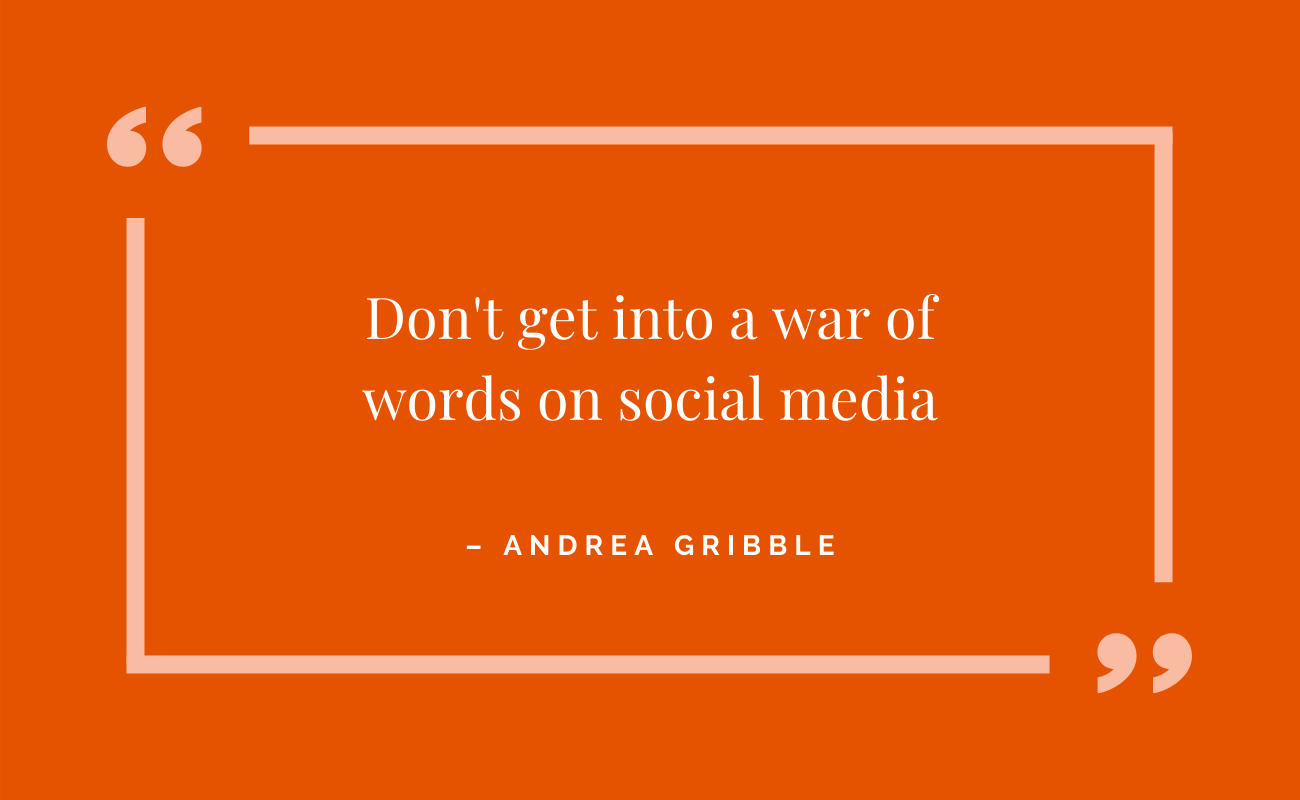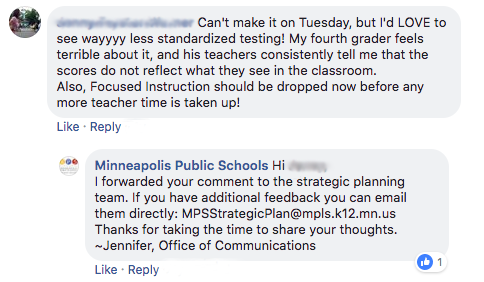Responding & Managing Facebook Comments
Social media is supposed to be just that – social. If someone takes the time to comment on your post or page, respond to them using best customer service practices. Engage with your audience and you will build champions and advocates. Here are some tips for managing Facebook comments.
This is easy to do when the comments are positive. Thank them for their comment, give them a shout-out, ask a follow-up question, etc. By doing this you are starting (or continuing) a conversation and you will begin to build a relationship and trust.
What about when the comment is negative or false?
Best practices for social media conversations
- Be aware of your social media policy, terms of service and what you can or cannot do under those guidelines.
- Know who to go to if things heat up. General counsel, communications director, team manager, etc.
- Take time to craft a good response; don’t rush. This is especially true if the initial comment causes you to feel defensive, hurt or angry. When managing Facebook comments, it is never a good idea to engage with anyone on social media from an emotional perspective. Social media expert Andrea Gribble suggests “Don’t get into a war of words on social media.”

- If it will take time to develop or research a response, post a short comment to acknowledge you saw their question and that you are working to find the information they need.
- When you respond, use the tone of voice that reflects your organization. When you respond, you elevate the issue and the post. Many more people will see how you replied than saw the original post. Whether the tone is professional, conversational, hip, etc. be sure you reflect the voice of your brand—which should be stated in your brand guide.
- Sometimes it’s better to take the conversation off-line.
The nice thing about managing Facebook comments is that posts are tied to a name; they can’t be anonymous. If you see a post from an upset parent or community member, try picking up the phone and helping to solve a problem. If you can resolve the issue, you may gain a champion going forward.
Tips for responding to less-than-positive comments
Know when to monitor and when to respond
A response is not always the smart choice when you encounter a negative comment. If the comment is any of the following, consider monitoring the situation:
- If the source is dedicated to bashing or degrading others, such as a vocal community activist with a clear agenda, you should avoid responding.
- If the post is a rant, rage, joke or satirical in nature, do not comment or reply. These can be very tricky because you can’t judge the tone or intent with online comments.
- If the negative comment is from a person or source that is credible and with strong viewership, such as a local elected official or your local paper, you should probably not engage. This is especially true if their trust level is higher than yours in the community.
When a negative comment should have a response:
- If the comment is the result of a negative experience, you should definitely respond. Write a public response to a public complaint that invites the person to contact you directly to resolve the situation. Try to avoid a back-and-forth online conversation. If you know the person and can contact them directly, do so. Resolve the matter offline, then go back online and post a thank you to the person for taking the time to resolve it. This allows the public to see that you are responsive and care about peoples’ experiences.
Fix the facts
If the comment has misinformation or blatant lies you will want to reply. Be sure your response is transparent. Explain the situation, cite sources and identify yourself (see “pro tip” below). When possible, provide a web link to authoritative information.
Pro tip
When engaging with an angry or negative comment online, it is always helpful to add your first name to your response (if allowed in your social media guideline). It is much easier for someone to be emotional and disrespectful towards an organization, as opposed to another person. This strategy has a tendency to deescalate things quickly. Here is an example:

Published on: February 1, 2021